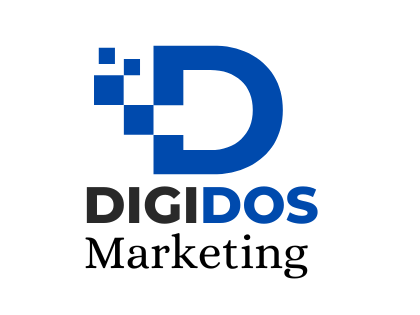The Art and Science of Content Writing in Digital Marketing: A Comprehensive Guide
Introduction
Content writing is a fundamental aspect of digital marketing that plays a pivotal role in engaging, informing, and persuading online audiences. It encompasses the creation of various types of written content, including blog posts, articles, web pages, social media posts, and email marketing campaigns, with the primary goal of delivering valuable information and fostering meaningful connections with readers. In this comprehensive guide, we will explore the significance of content writing in digital marketing, its key principles, and effective strategies to excel in this critical discipline.
The Significance of Content Writing in Digital Marketing
Content writing is the lifeblood of digital marketing for several compelling reasons:
- Informing and Educating: High-quality content serves as an educational resource for your target audience. It provides valuable information, answers questions, and addresses pain points, positioning your brand as a trusted authority in your niche.
- Engaging and Entertaining: Engaging content captures the attention of readers and keeps them interested. It often incorporates storytelling, humor, or emotional appeal to create a connection with the audience.
- Driving Organic Traffic: Search engines reward fresh, relevant, and well-optimized content with higher search rankings. By consistently producing valuable content, you can attract organic traffic to your website, reducing the need for expensive paid advertising.
- Building Brand Authority: Consistently producing high-quality content helps establish your brand as an authority in your industry. When readers trust your expertise, they are more likely to choose your products or services.
- Supporting SEO Efforts: Search engine optimization (SEO) relies heavily on content. Optimized content with relevant keywords, internal and external links, and meta information can improve your website’s search engine rankings.
- Nurturing Leads: Content can be used to nurture leads through the sales funnel. By providing valuable information at each stage of the buyer’s journey, you can guide prospects toward conversion.
- Boosting Social Media Engagement: Social media platforms thrive on content. Well-crafted posts, articles, and visual content can increase user engagement, followers, and shares, expanding your brand’s reach.
- Email Marketing: Content plays a crucial role in email marketing campaigns. Informative and compelling emails can drive conversions, promote products or services, and maintain customer engagement.
Key Principles of Effective Content Writing in Digital Marketing
Successful content writing in digital marketing involves adhering to several key principles:
- Know Your Audience: Understanding your target audience is fundamental. Create content tailored to their needs, preferences, and pain points. Conduct audience research to gain insights into their demographics, behaviors, and interests.
- Provide Value: Valuable content solves problems, answers questions, or offers entertainment. Focus on providing content that genuinely benefits your audience.
- Quality Matters: High-quality content is well-researched, accurate, and free of errors. Poorly written content can erode trust and credibility.
- Clear and Concise: Keep your content clear, concise, and easy to understand. Avoid jargon or overly technical language unless your audience is well-versed in the subject matter.
- Compelling Headlines: Craft attention-grabbing headlines that pique curiosity and encourage readers to delve into the content.
- Structure and Formatting: Use headings, subheadings, bullet points, and visuals to break up text and improve readability. Online readers often skim content, so make it scannable.
- Storytelling: Incorporate storytelling elements into your content to engage readers emotionally. Stories make information more relatable and memorable.
- SEO Optimization: Implement on-page SEO practices by including relevant keywords, meta descriptions, alt tags for images, and optimizing URL structures.
- Originality: Plagiarism is unacceptable. Ensure that your content is unique and properly cited if you reference external sources.
- Call to Action (CTA): Include clear and compelling CTAs in your content to guide readers toward the desired action, whether it’s subscribing, contacting you, or making a purchase.
- Consistency: Maintain a consistent tone, style, and publishing schedule across your content. This helps build a recognizable brand voice and keeps your audience engaged.
- Analytics and Iteration: Use analytics tools to track the performance of your content. Analyze data on engagement, traffic, and conversions to refine your content strategy continually.
Effective Content Writing Strategies
- Content Calendar: Create a content calendar to plan and organize your content production. This ensures consistency and aligns your content with marketing goals and seasonal trends.
- Keyword Research: Conduct thorough keyword research to identify relevant search terms. Use these keywords strategically in your content to improve search engine rankings.
- Content Types: Diversify your content types to cater to different audience preferences. Explore blog posts, articles, infographics, videos, podcasts, and more.
- Visual Content: Incorporate visual elements such as images, videos, and infographics into your content to enhance engagement and convey information more effectively.
- Guest Blogging: Collaborate with industry influencers and other websites through guest blogging. This can expand your reach and establish your brand in new spaces.
- User-Generated Content (UGC): Encourage user-generated content by hosting contests, reviews, or social media campaigns. UGC fosters community and trust.
- Content Promotion: Develop a promotion strategy to ensure your content reaches its intended audience. Share on social media, email newsletters, and other relevant platforms.
- Content Updates: Regularly revisit and update older content to keep it relevant and maintain its search engine ranking.
- Multilingual Content: If applicable, consider creating content in multiple languages to reach a broader audience.
Measuring Content Writing Success
Measuring the success of your content writing efforts is crucial for continuous improvement. Here are some key performance indicators (KPIs) to track:
- Traffic Metrics: Monitor website traffic, including page views, unique visitors, and bounce rates.
- Engagement Metrics: Track engagement metrics such as time on page, click-through rates, and social media shares.
- Conversion Rates: Measure how well your content converts visitors into leads or customers.
- SEO Performance: Analyze keyword rankings, organic search traffic, and backlinks generated by your content.
- Social Media Metrics: Monitor social media engagement, followers, likes, shares, and comments related to your content.
- Email Marketing Metrics: Assess open rates, click-through rates, and conversion rates for email campaigns featuring your content.
- Customer Feedback: Collect and analyze customer feedback, reviews, and comments related to your content.
- ROI: Calculate the return on investment by comparing the cost of content creation to the revenue generated from content-related conversions.
Conclusion
Content writing is the cornerstone of digital marketing, serving as the bridge that connects businesses with their target audiences. By adhering to key principles, employing effective strategies, and measuring performance, content writers can create valuable, engaging, and influential content that drives digital marketing success. In a rapidly evolving digital landscape, mastering the art and science of content writing is essential for businesses looking to thrive and build lasting connections with their online audience.
Content writing offers numerous benefits for individuals and businesses across various industries. These benefits encompass marketing, communication, education, and more. Here are some of the key advantages of content writing:
- Enhanced Online Visibility: Well-written and optimized content can improve a website’s search engine ranking. This means more people can discover your website through organic search, increasing your online visibility and attracting potential customers or readers.
- Establishing Authority: High-quality content positions you or your business as an authority in your niche or industry. When you provide valuable, accurate, and well-researched information, readers and customers are more likely to trust your expertise.
- Increased Website Traffic: Informative and engaging content can draw more visitors to your website. As users find your content valuable, they are more likely to explore other parts of your site, which can lead to increased page views and longer session durations.
- Improved User Engagement: Content that resonates with your audience can encourage readers to engage with your website or brand. This engagement may include comments, social media shares, likes, and direct messages, fostering a sense of community and interaction.
- Educating Your Audience: Content writing allows you to educate your audience about your products, services, or industry. You can clarify complex concepts, answer common questions, and provide valuable insights, which can lead to better-informed customers.
- Lead Generation: Content can serve as a lead generation tool. By offering valuable resources like ebooks, whitepapers, or webinars in exchange for contact information, you can build a list of potential customers interested in your offerings.
- Boosted Sales and Conversions: Well-crafted content can influence purchasing decisions. Informative product descriptions, persuasive landing pages, and educational blog posts can all contribute to higher conversion rates and increased sales.
- Cost-Effective Marketing: Compared to traditional advertising, content marketing is often more cost-effective. Creating and promoting content may require an initial investment, but it can yield long-term results and ongoing benefits without the recurring costs of traditional advertising.
- Improved Customer Retention: Regularly publishing valuable content can help keep your existing customers engaged. By providing ongoing value and staying top-of-mind, you can encourage repeat business and brand loyalty.
- Effective Branding: Content helps you define and communicate your brand identity. Consistent messaging, tone, and style across your content can build a strong and recognizable brand image.
- Establishing Trust and Credibility: Quality content builds trust and credibility with your audience. When you consistently deliver accurate and helpful information, your audience is more likely to trust your recommendations and engage with your brand.
- Competitive Advantage: In competitive markets, high-quality content can set you apart from competitors. It can attract customers who value the expertise and insights you provide.
- Educational Marketing: Content can be used for educational marketing, helping customers understand how to use your products or services effectively. This can reduce customer support inquiries and enhance user experiences.
- Feedback and Insights: Content can serve as a platform for feedback and insights. Comments, reviews, and discussions related to your content can provide valuable feedback and help you understand your audience’s needs and preferences.
- Adaptability: Content can be adapted to various formats and channels, including blogs, social media, emails, videos, podcasts, and more. This adaptability allows you to reach your audience where they are most active and engage with them through their preferred content format.
- Longevity: Quality content has a longer lifespan compared to some other marketing efforts. Evergreen content, in particular, can continue to drive traffic and generate leads for months or even years after its initial publication.
In summary, content writing offers a wide array of benefits, including improved online visibility, increased authority, lead generation, cost-effective marketing, customer engagement, and enhanced brand trust. It is a versatile and essential tool in the digital age for individuals and businesses looking to connect with their target audience and achieve various marketing and communication goals.

